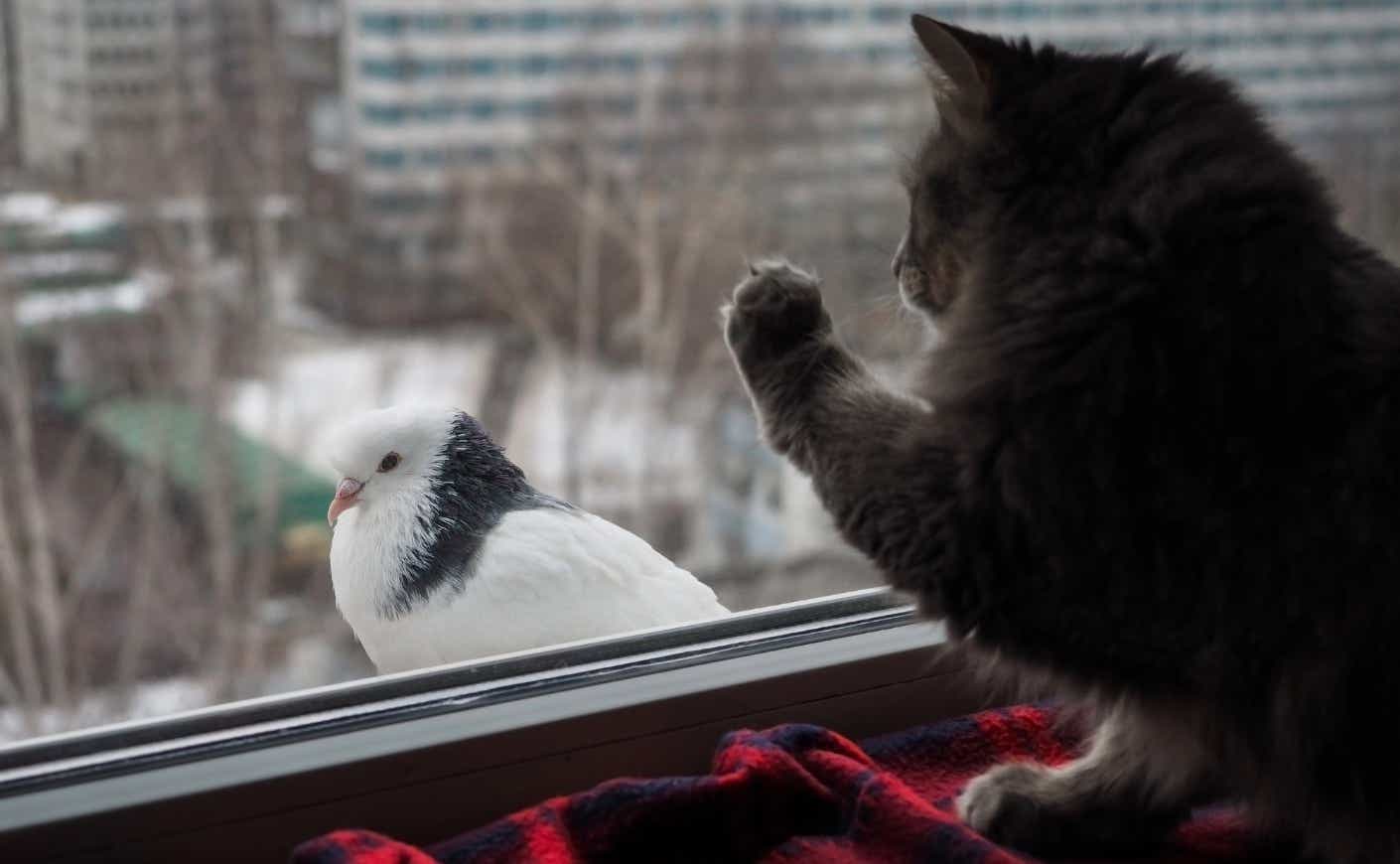Over the last few months, a concerning bird flu outbreak has been spreading swiftly from dairy cows to chickens, and four people have come down with the virus as a result. But these cases aren’t just limited to farm animals — recent data shows that our beloved household pets aren’t immune to the virus, either.
Since the dairy outbreak was first detected in March, at least 21 cats in nine states, including Texas and New Mexico, have caught avian influenza (also known as H5N1), according to the U.S. Department of Agriculture, which recently began tracking these cases. (Other affected species include mice, skunks, and alpacas.) These instances have mostly been reported around farms with outbreaks of the virus.
While H5N1 has been known to infect dogs, here’s why felines are particularly at risk, plus how you can protect your pet (and yourself) from getting sick.
How are cats getting bird flu?
The Centers for Disease Control and Prevention reported that H5N1 has been detected in cats in the U.S., Poland, South Korea, and France. This includes recent reports in Texas, where a number of felines were infected on dairy farms, “suggesting the virus spread to the cats either from affected dairy cows, raw cow milk, or from wild birds associated with those farms.”
Although the disease can infect many animals, cats have been known to be occasional victims of avian influenza for decades. Experts believe this is most likely because cats eat birds and are exposed to sick or dead prey carrying the virus.
Other outbreaks have even been linked to cat food. For instance, nearly 40 shelter cats died last year in Seol, South Korea, after being fed raw duck meat contaminated with the virus. Cat owners might also want to be weary of raw milk, which hasn’t been pasteurized to kill bacteria and viruses like H5N1. According to the World Organization for Animal Health, water, footwear, or equipment contaminated with bird droppings are also potential sources of infection.
While dogs appear less susceptible to the virus than cats, a handful of cases have been reported. In 2023, a dog died of H5N1 “after chewing on a wild goose,” according to the Canadian Food Inspection Agency. Then, that same year, a dog in Poland contracted the virus but later recovered.
Can cats die of bird flu, and what are the symptoms?
Unlike dogs, cats are more likely to become severely ill from the virus. According to a recent review, the latest version of H5N1 has a 67 percent mortality rate in felines. Researchers believe this is because the virus isn’t as well adapted to canines, and they need a high dosage to become infected.
Many infected cats develop fevers, loss of appetite, and respiratory symptoms, including nasal discharge. Stiffness, tremors, and seizures are common, though sometimes these signs are confused for rabies.
While the CDC says it’s rare, it's still possible for people to catch bird flu from their pets. For instance, in 2016, a vet in New York City contracted bird flu from repeated exposure to sick cats without protective gear, and they later recovered after suffering mild symptoms.
How can you protect your pet from bird flu?
The best thing you can do is keep your cats inside and away from birds. If you do let your furry friend go outside, keep bird feeders away from the yard or catio to limit their exposure to potentially infected feces.
The World Organization for Animal Health also recommends cleaning your shoes after walking in places where bird droppings might be present and following regular hygiene protocols, such as washing your hands.
You also want to avoid feeding your cats raw poultry and milk. “The bottom line is not feeding raw milk products to pets is as important as not consuming them yourselves,” veterinarian and environmental epidemiologist Meghan Davis told ScienceNews.
So far, no bird flu vaccines are available for cats and other pets. But if your feline does bring home a dead bird, don’t panic — make sure you avoid picking it up, and keep an eye on your pet over the next few days to ensure they don’t develop any symptoms.









